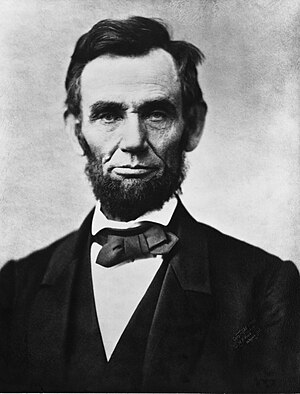 Image via Wikipedia
Image via WikipediaOn Monday, April 22, 1861, for the second day in a row, Lincoln met with Marylanders to discuss moving troops though the state. This group was a little more unofficial than the first -- a group organized by the YMCA. They urged the president to recognize the independence of the Southern states and to send no more troops through Baltimore.
Lincoln's response was forceful:
You, gentlemen, come here to me and ask for peace on any terms, and yet have no word of condemnation for those who are making war on us. You express great horror of bloodshed, and yet would not lay a straw in the way of those who are organizing in Virginia and elsewhere to capture this city.He summed up the situation:
I have no desire to invade the South, but I must have troops to defend this Capital. Geographically it lies surrounded by the soil of Maryland; and mathematically the necessity exists that they should come over her territory. Our men are not moles, and can't dig under the earth; they are not birds and can't fly through the air. There is no way but to march across, and that they must do.Then ended with a threat:
Keep your rowdies in Baltimore, and there will be no bloodshed. Go home and tell your people that if they will not attack us, we will not attack them, but if they do attack us, we will return it, and that severely.
At Annapolis, General Benjamin Butler was making the argument moot. After negotiations with Maryland Governor Thomas Hicks, Butler had brought the 8th Massachusetts ashore. As they were landing, another steamer arrived carrying the 7th New York. Since Butler was the ranking officer present, he assumed command of everyone and quickly put them to work opening the railroad to Washington. Butler was soon ordered to remain at Annapolis and keep the route open. The 7th New York made its way to Washington, arriving there on April 25, ten days after Lincoln's call for troops.

No comments:
Post a Comment